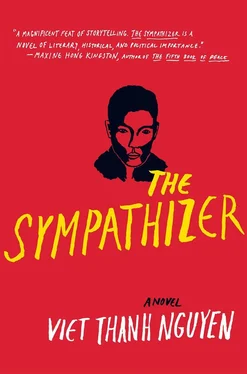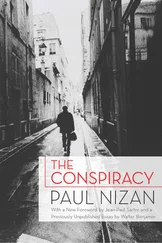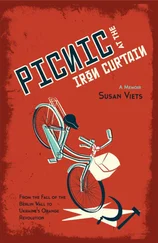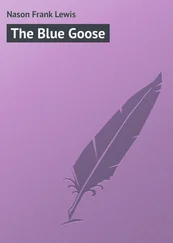Claude was our most trusted American friend, our relationship so intimate he once confided in me to being one-sixteenth Negro. Ah, I had said, equally smashed on Tennessee bourbon, that explains why your hair is black, and why you tan well, and why you can dance the cha-cha like one of us. Beethoven, he said, was likewise of hexadecimal descent. Then, I said, that explains why you can carry the tune of “Happy Birthday” like no one’s business. We had known each other for more than two decades, ever since he had spotted me on a refugee barge in ’54 and recognized my talents. I was a precocious nine-year-old who had already learned a decent amount of English, taught to me by a pioneering American missionary. Claude supposedly worked in refugee relief. Now his desk was in the American embassy, his assignment ostensibly to promote the development of tourism in our war-stricken country. This, as you might imagine, required every drop he could squeeze from a handkerchief soaked with the sweat of the can-do American spirit. In reality, Claude was a CIA man whose time in this country dated back to the days when the French still ruled an empire. In those days, when the CIA was the OSS, Ho Chi Minh looked to them for help in fighting the French. He even quoted America’s Founding Fathers in his declaration of our country’s independence. Uncle Ho’s enemies say he spoke out of both sides of his mouth at the same time, but Claude believed he saw both sides at once. I rang Claude from my office, down the hall from the General’s study, and informed him in English that the General had lost all hope. Claude’s Vietnamese was bad and his French worse, but his English was excellent. I point this out only because the same thing could not be said of all his countrymen.
It’s over, I said, and when I said it to Claude it finally seemed real. I thought Claude might protest and argue that American bombers might yet fill our skies, or that American air cavalry might soon ride on gunships to our rescue, but Claude did not disappoint. I’ll see what I can arrange, he said, a murmur of voices audible in the background. I imagined the embassy in disarray, teletypes overheating, urgent cables crisscrossing between Saigon and Washington, the staff working without respite, and the funk of defeat so pungent it overwhelmed the air conditioners. Amid short tempers, Claude stayed cool, having lived here so long he barely perspired in the tropical humidity. He could sneak up on you in the dark, but he could never be invisible in our country. Although an intellectual, he was of a peculiarly American breed, the muscular kind who rowed crew and who flexed substantial biceps. Whereas our scholarly types tended to be pale, myopic, and stunted, Claude was six-two, had perfect vision, and kept himself in shape by performing two hundred push-ups each morning, his Nung houseboy squatting on his back. During his free time, he read, and whenever he visited the villa, a book was tucked under his arm. When he arrived a few days later, Richard Hedd’s Asian Communism and the Oriental Mode of Destruction was the paperback he carried.
The book was for me, while the General received a bottle of Jack Daniel’s — a gift I would have preferred if given the choice. Nevertheless, I took care to peruse the book’s cover, crowded with blurbs so breathless they might have been lifted from the transcript of a teenage girls’ fan club, except that the excited giggling came from a pair of secretaries of defense, a senator who had visited our country for two weeks to find facts, and a renowned television anchor who modeled his enunciation on Moses, as played by Charlton Heston. The reason for their excitement was found in the significant type of the subtitle, On Understanding and Defeating the Marxist Threat to Asia . When Claude said everyone was reading this how-to manual, I said I would read it as well. The General, who had cracked open the bottle, was in no mood to discuss books or chitchat, not with eighteen enemy divisions encircling the capital. He wanted to discuss the plane, and Claude, rolling his glass of whiskey between his palms, said the best he could do was a black flight, off the books, on a C-130. It could hold ninety-two paratroopers and their gear, as the General well knew, having served in the Airborne before being called on by the president himself to lead the National Police. The problem, as he explained to Claude, was that his extended family alone amounted to fifty-eight. While he did not like some of them, and in fact despised a few, Madame would never forgive him if he did not rescue all of her relations.
And my staff, Claude? The General spoke in his precise, formal English. What of them? Both the General and Claude glanced at me. I tried to look brave. I was not the senior officer on the staff, but as the aide-de-camp and the officer most fluent in American culture, I attended all the General’s meetings with Americans. Some of my countrymen spoke English as well as I, although most had a tinge of an accent. But almost none could discuss, like I, baseball standings, the awfulness of Jane Fonda, or the merits of the Rolling Stones versus the Beatles. If an American closed his eyes to hear me speak, he would think I was one of his kind. Indeed, on the phone, I was easily mistaken for an American. On meeting in person, my interlocutor was invariably astonished at my appearance and would almost always inquire as to how I had learned to speak English so well. In this jackfruit republic that served as a franchise of the United States, Americans expected me to be like those millions who spoke no English, pidgin English, or accented English. I resented their expectation. That was why I was always eager to demonstrate, in both spoken and written word, my mastery of their language. My vocabulary was broader, my grammar more precise than the average educated American. I could hit the high notes as well as the low, and thus had no difficulty in understanding Claude’s characterization of the ambassador as a “putz,” a “jerkoff” with “his head up his ass” who was in denial about the city’s imminent fall. Officially, there’s no evacuation, said Claude, because we’re not pulling out any time soon.
The General, who hardly ever raised his voice, now did. Unofficially, you are abandoning us, he shouted. All day and night planes depart from the airport. Everyone who works with Americans wants an exit visa. They go to your embassy for these visas. You have evacuated your own women. You have evacuated babies and orphans. Why is it that the only people who do not know the Americans are pulling out are the Americans? Claude had the decency to look embarrassed as he explained how the city would erupt in riots if an evacuation was declared, and perhaps then turn against the Americans who remained. This had happened in Da Nang and Nha Trang, where the Americans had fled for their lives and left the residents to turn on one another. But despite this precedent, the atmosphere was strangely quiet in Saigon, most of the Saigonese citizenry behaving like people in a scuppered marriage, willing to cling gamely to each other and drown so long as nobody declared the adulterous truth. The truth, in this case, was that at least a million people were working or had worked for the Americans in one capacity or another, from shining their shoes to running the army designed by the Americans in their own image to performing fellatio on them for the price, in Peoria or Poughkeepsie, of a hamburger. A good portion of these people believed that if the communists won — which they refused to believe would happen — what awaited them was prison or a garrote, and, for the virgins, forced marriage with the barbarians. Why wouldn’t they? These were the rumors the CIA was propagating.
So— the General began, only to have Claude interrupt him. You have one plane and you should consider yourself lucky, sir. The General was not one to beg. He finished his whiskey, as did Claude, then shook Claude’s hand and bid him good-bye, never once letting his gaze fall away from Claude’s own. Americans liked seeing people eye to eye, the General had once told me, especially as they screwed them from behind. This was not how Claude saw the situation. Other generals were only getting seats for their immediate families, Claude said to us in parting. Even God and Noah couldn’t save everyone. Or wouldn’t, anyway.
Читать дальше












